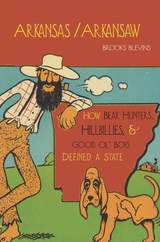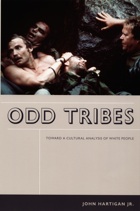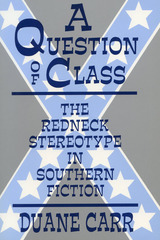3 books about Rednecks

Arkansas/Arkansaw
How Bear Hunters, Hillbillies, and Good Ol' Boys Defined a State
Brooks Blevins
University of Arkansas Press, 2009
What do Scott Joplin, John Grisham, Gen. Douglas MacArthur, Maya Angelou, Brooks Robinson, Helen Gurley Brown, Johnny Cash, Alan Ladd, and Sonny Boy Williamson have in common? They’re all Arkansans. What do hillbillies, rednecks, slow trains, bare feet, moonshine, and double-wides have in common? For many in America these represent Arkansas more than any Arkansas success stories do. In 1931 H. L. Mencken described AR (not AK, folks) as the “apex of moronia.” While, in 1942 a Time magazine article said Arkansas had “developed a mass inferiority complex unique in American history.” Arkansas/Arkansaw is the first book to explain how Arkansas’s image began and how the popular culture stereotypes have been perpetuated and altered through succeeding generations. Brooks Blevins argues that the image has not always been a bad one. He discusses travel accounts, literature, radio programs, movies, and television shows that give a very positive image of the Natural State. From territorial accounts of the Creole inhabitants of the Mississippi River Valley to national derision of the state’s triple-wide governor’s mansion to Li’l Abner, the Beverly Hillbillies, and Slingblade, Blevins leads readers on an entertaining and insightful tour through more than two centuries of the idea of Arkansas. One discovers along the way how one state becomes simultaneously a punch line and a source of admiration for progressives and social critics alike.
Winner, 2011 Ragsdale Award
[more]

Odd Tribes
Toward a Cultural Analysis of White People
John Hartigan Jr.
Duke University Press, 2005
Odd Tribes challenges theories of whiteness and critical race studies by examining the tangles of privilege, debasement, power, and stigma that constitute white identity. Considering the relation of phantasmatic cultural forms such as the racial stereotype “white trash” to the actual social conditions of poor whites, John Hartigan Jr. generates new insights into the ways that race, class, and gender are fundamentally interconnected. By tracing the historical interplay of stereotypes, popular cultural representations, and the social sciences’ objectifications of poverty, Hartigan demonstrates how constructions of whiteness continually depend on the vigilant maintenance of class and gender decorums.
Odd Tribes engages debates in history, anthropology, sociology, and cultural studies over how race matters. Hartigan tracks the spread of “white trash” from an epithet used only in the South prior to the Civil War to one invoked throughout the country by the early twentieth century. He also recounts how the cultural figure of “white trash” influenced academic and popular writings on the urban poor from the 1880s through the 1990s. Hartigan’s critical reading of the historical uses of degrading images of poor whites to ratify lines of color in this country culminates in an analysis of how contemporary performers such as Eminem and Roseanne Barr challenge stereotypical representations of “white trash” by claiming the identity as their own. Odd Tribes presents a compelling vision of what cultural studies can be when diverse research methodologies and conceptual frameworks are brought to bear on pressing social issues.
Odd Tribes engages debates in history, anthropology, sociology, and cultural studies over how race matters. Hartigan tracks the spread of “white trash” from an epithet used only in the South prior to the Civil War to one invoked throughout the country by the early twentieth century. He also recounts how the cultural figure of “white trash” influenced academic and popular writings on the urban poor from the 1880s through the 1990s. Hartigan’s critical reading of the historical uses of degrading images of poor whites to ratify lines of color in this country culminates in an analysis of how contemporary performers such as Eminem and Roseanne Barr challenge stereotypical representations of “white trash” by claiming the identity as their own. Odd Tribes presents a compelling vision of what cultural studies can be when diverse research methodologies and conceptual frameworks are brought to bear on pressing social issues.
[more]

A Question of Class
The Redneck Stereotype in Southern Fiction
Duane Carr
University of Wisconsin Press, 1997
“Rednecks” have long been subjects of scorn and ridicule, especially in the South. Carr probes the historical and sociological reasons for the descent of this social class into poverty, their inability to rise above it, and their continuing subjugation to a stereotype developed by others—and all too often accepted by themselves. Carr also records the progress in Southern fiction of this negative stereotype, from antebellum writers who saw rednecks as threats to the social order, to post-Civil War writers who lamented the lost potential of these people and urged sympathy and understanding, to contemporary writers who favor acceptance. Ultimately, this work is an evaluation of individual Southern fiction writers in their capacity to rise above stereotyping.
[more]
READERS
Browse our collection.
PUBLISHERS
See BiblioVault's publisher services.
STUDENT SERVICES
Files for college accessibility offices.
UChicago Accessibility Resources
home | accessibility | search | about | contact us
BiblioVault ® 2001 - 2024
The University of Chicago Press









